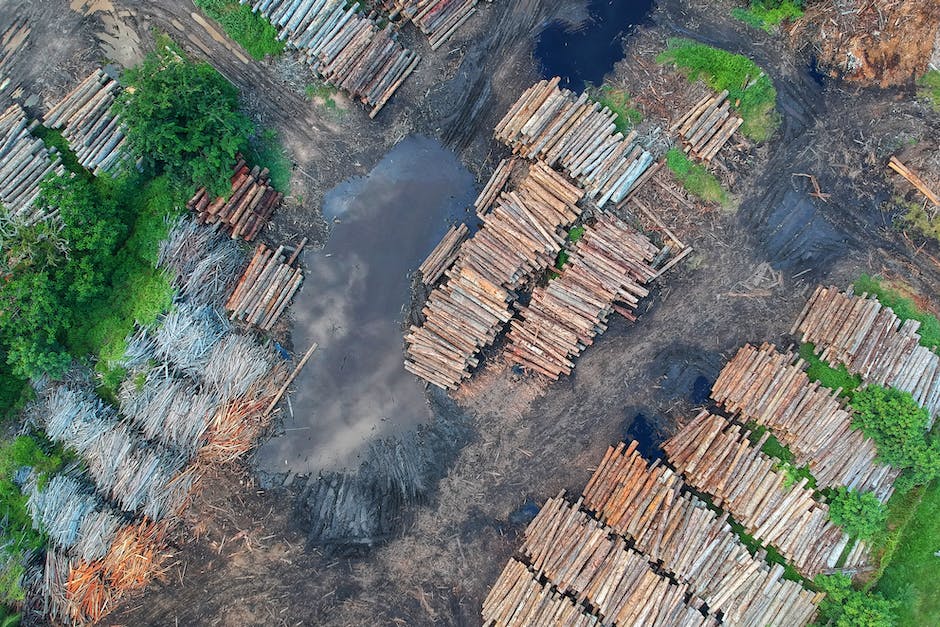Table of Contents
- Introduction
- The Role of Government Policies in Combating Deforestation in the Arab World
- Innovative Approaches to Reforestation and Afforestation in Arab Countries
- Empowering Local Communities in the Fight Against Deforestation
- Promoting Sustainable Practices in the Arab World’s Agriculture and Forestry Sectors
- Q&A
- Conclusion
“Tackling Deforestation: Uniting for a Greener Future”
Introduction
“Tackling Deforestation: Leadership Lessons from the Arab World” explores the valuable insights and experiences gained from the Arab world’s efforts in addressing deforestation. This introduction provides an overview of the importance of tackling deforestation, highlights the unique challenges faced in the Arab world, and emphasizes the leadership lessons that can be learned from their successful initiatives.
The Role of Government Policies in Combating Deforestation in the Arab World

Deforestation is a global issue that poses significant threats to the environment and biodiversity. The Arab world, with its rich natural resources and diverse ecosystems, is not immune to this problem. However, there are valuable lessons to be learned from the leadership and government policies in the Arab world that have successfully combated deforestation.
One of the key lessons from the Arab world is the importance of strong government policies and regulations. Governments in the region have recognized the urgency of addressing deforestation and have implemented strict laws to protect their forests. For example, in Morocco, the government has established the High Commission for Water, Forests, and Combating Desertification, which is responsible for the conservation and sustainable management of forests. This centralized authority ensures that policies are effectively implemented and enforced.
Another important aspect of government policies in the Arab world is the emphasis on community involvement and participation. Governments have recognized that local communities play a crucial role in the conservation of forests and have actively engaged them in decision-making processes. This approach not only empowers communities but also ensures that their traditional knowledge and practices are taken into account. In Jordan, for instance, the government has established community-based forest management committees, which involve local communities in the management and protection of forests.
Furthermore, the Arab world has shown a commitment to international cooperation and collaboration in combating deforestation. Governments in the region have actively participated in global initiatives and agreements aimed at addressing deforestation, such as the United Nations Framework Convention on Climate Change and the Convention on Biological Diversity. This commitment to international cooperation allows for the exchange of knowledge, expertise, and resources, which are essential in tackling deforestation on a global scale.
In addition to government policies, the Arab world has also demonstrated the importance of leadership in combating deforestation. Strong and visionary leaders have played a crucial role in raising awareness about the importance of forests and mobilizing resources for their conservation. For example, Sheikh Zayed bin Sultan Al Nahyan, the late President of the United Arab Emirates, was a staunch advocate for environmental conservation and played a key role in establishing protected areas and promoting sustainable development in the country.
Moreover, leadership in the Arab world has been characterized by a long-term vision and commitment to sustainable development. Leaders have recognized that addressing deforestation requires not only short-term measures but also long-term strategies that promote sustainable land use and economic growth. This holistic approach ensures that the benefits of forests are maximized while minimizing their negative impacts.
In conclusion, the Arab world provides valuable lessons in tackling deforestation through its government policies and leadership. Strong government regulations, community involvement, international cooperation, and visionary leadership are all essential components of successful efforts to combat deforestation. By learning from the experiences of the Arab world, other regions can develop effective strategies to protect their forests and ensure a sustainable future for generations to come.
Innovative Approaches to Reforestation and Afforestation in Arab Countries
Tackling Deforestation: Leadership Lessons from the Arab World
Innovative Approaches to Reforestation and Afforestation in Arab Countries
Deforestation is a global issue that poses significant environmental and socio-economic challenges. Arab countries, with their unique ecosystems and rich biodiversity, have not been immune to this problem. However, in recent years, these countries have taken innovative approaches to tackle deforestation and promote reforestation and afforestation. By examining the leadership lessons from the Arab world, we can gain valuable insights into effective strategies for combating deforestation.
One of the key lessons from the Arab world is the importance of strong political will and leadership in addressing deforestation. Arab countries such as Jordan and Morocco have demonstrated a commitment to environmental conservation through the establishment of national strategies and action plans. These plans outline specific goals and targets for reforestation and afforestation, and provide a roadmap for implementation. By setting clear objectives and mobilizing resources, these countries have been able to make significant progress in combating deforestation.
Another lesson from the Arab world is the value of partnerships and collaboration in reforestation efforts. Arab countries have recognized the need for multi-stakeholder engagement and have actively sought partnerships with international organizations, non-governmental organizations, and local communities. These partnerships have not only provided financial and technical support but have also fostered knowledge exchange and capacity building. By working together, Arab countries have been able to leverage resources and expertise to implement effective reforestation programs.
Furthermore, the Arab world has embraced innovative technologies and approaches to reforestation. For example, in Saudi Arabia, the Kingdom’s Vision 2030 initiative includes a commitment to plant 10 billion trees in the coming decades. To achieve this ambitious goal, the country has turned to advanced technologies such as drones and satellite imagery to monitor and manage reforestation efforts. These technologies enable real-time monitoring of tree growth and health, allowing for timely interventions and adjustments. By embracing technology, Arab countries are able to maximize the impact of their reforestation efforts.
Additionally, the Arab world has recognized the importance of community involvement in reforestation initiatives. In countries like Lebanon and Tunisia, local communities have been actively engaged in tree planting and forest management activities. This community-led approach not only ensures the sustainability of reforestation efforts but also empowers local communities and enhances their sense of ownership and responsibility. By involving communities in decision-making processes and providing them with the necessary training and support, Arab countries have been able to foster a culture of environmental stewardship.
In conclusion, the Arab world has demonstrated leadership and innovation in tackling deforestation through reforestation and afforestation initiatives. The lessons learned from these efforts can serve as valuable guidance for other countries facing similar challenges. Strong political will, partnerships, innovative technologies, and community involvement are key elements in successful reforestation programs. By adopting these approaches, countries can make significant progress in combating deforestation and preserving their natural resources for future generations. The Arab world’s leadership in this area is an inspiration and a testament to the power of collective action in addressing global environmental challenges.
Empowering Local Communities in the Fight Against Deforestation
Deforestation is a global issue that affects not only the environment but also the livelihoods of millions of people around the world. In recent years, the Arab world has emerged as a leader in tackling deforestation by empowering local communities to take action. This approach has proven to be effective in not only preserving forests but also in promoting sustainable development and economic growth.
One of the key lessons that can be learned from the Arab world’s approach to tackling deforestation is the importance of empowering local communities. By involving local communities in decision-making processes and giving them a stake in the management of forests, the Arab world has been able to create a sense of ownership and responsibility among the people who live in and around these forests.
This approach has been particularly successful in countries like Jordan, where the government has implemented a community-based forest management program. Under this program, local communities are given the authority to manage and protect forests in their areas. They are also provided with the necessary training and resources to carry out these tasks effectively.
The results of this approach have been remarkable. Not only have deforestation rates decreased significantly, but local communities have also seen an improvement in their living conditions. By actively participating in the management of forests, communities have been able to generate income through sustainable forestry practices such as eco-tourism and the production of non-timber forest products.
Another important lesson that can be learned from the Arab world’s approach is the need for strong leadership and political will. In countries like Morocco, the government has taken a proactive stance in tackling deforestation by implementing strict regulations and policies. These policies include the establishment of protected areas, the promotion of reforestation initiatives, and the enforcement of laws against illegal logging.
By providing clear guidelines and regulations, the government has created an enabling environment for local communities to take action against deforestation. This has not only helped in preserving forests but has also fostered a culture of environmental stewardship among the population.
Furthermore, the Arab world has recognized the importance of international cooperation in tackling deforestation. Countries like Saudi Arabia have actively participated in global initiatives such as the United Nations Collaborative Programme on Reducing Emissions from Deforestation and Forest Degradation (UN-REDD). Through this program, countries work together to develop strategies and share best practices in forest conservation.
By collaborating with other countries, the Arab world has been able to learn from their experiences and adapt successful strategies to their own contexts. This has not only enhanced their capacity to tackle deforestation but has also fostered a sense of solidarity and shared responsibility towards the global environment.
In conclusion, the Arab world has emerged as a leader in tackling deforestation by empowering local communities, demonstrating strong leadership, and promoting international cooperation. By involving local communities in decision-making processes, the Arab world has created a sense of ownership and responsibility among the people who live in and around forests. This approach has not only helped in preserving forests but has also promoted sustainable development and economic growth. The Arab world’s experience provides valuable lessons for other regions and countries facing similar challenges in the fight against deforestation.
Promoting Sustainable Practices in the Arab World’s Agriculture and Forestry Sectors
Tackling Deforestation: Leadership Lessons from the Arab World
Promoting Sustainable Practices in the Arab World’s Agriculture and Forestry Sectors
Deforestation is a global issue that poses significant threats to the environment and biodiversity. The Arab world, with its vast agricultural and forestry sectors, has a crucial role to play in addressing this challenge. By adopting sustainable practices, the region can not only protect its natural resources but also set an example for the rest of the world. This article explores the leadership lessons that can be learned from the Arab world in promoting sustainable practices in agriculture and forestry.
One of the key lessons from the Arab world is the importance of strong leadership and political will. Countries like Saudi Arabia and the United Arab Emirates have demonstrated a commitment to sustainability by implementing ambitious reforestation programs. These initiatives are driven by visionary leaders who understand the long-term benefits of preserving forests and investing in sustainable agriculture. By providing the necessary resources and support, these leaders have created an environment conducive to sustainable practices.
Another lesson is the need for collaboration and partnerships. The Arab world has recognized that addressing deforestation requires a collective effort involving governments, businesses, and civil society. For example, the Arab Forum for Environment and Development brings together stakeholders from across the region to discuss and develop strategies for sustainable development. By fostering collaboration, the Arab world is able to leverage the expertise and resources of different sectors to tackle deforestation effectively.
Education and awareness are also crucial in promoting sustainable practices. The Arab world has recognized the importance of educating its citizens about the value of forests and the impact of deforestation. In countries like Jordan, environmental education is integrated into the school curriculum, ensuring that future generations are equipped with the knowledge and skills to protect the environment. By raising awareness, the Arab world is creating a culture of sustainability that will endure for years to come.
In addition to education, the Arab world has embraced technological innovation as a means to promote sustainable practices. For example, precision agriculture techniques are being used to optimize resource use and minimize environmental impact. Drones and satellite imagery are employed to monitor forests and detect illegal logging activities. By harnessing technology, the Arab world is able to enhance the efficiency and effectiveness of its sustainable practices.
Furthermore, the Arab world recognizes the importance of economic incentives in promoting sustainable practices. In countries like Morocco, financial incentives are provided to farmers who adopt sustainable agricultural practices. This not only encourages farmers to protect forests but also helps to alleviate poverty and improve livelihoods. By linking sustainability with economic benefits, the Arab world is able to create a win-win situation for both the environment and its people.
Finally, the Arab world understands the importance of long-term planning and investment. Sustainable practices require a commitment to the future, and this is reflected in the region’s strategic plans and policies. For example, the Arab Strategy for Sustainable Agriculture and Rural Development provides a roadmap for achieving sustainable agriculture by 2030. By setting clear goals and investing in the necessary infrastructure, the Arab world is laying the foundation for a sustainable future.
In conclusion, the Arab world offers valuable leadership lessons in promoting sustainable practices in agriculture and forestry. Through strong leadership, collaboration, education, technological innovation, economic incentives, and long-term planning, the region is making significant strides in tackling deforestation. By sharing these lessons with the rest of the world, the Arab world can inspire and guide global efforts to protect our planet’s precious forests.
Q&A
1. What is the main focus of the article “Tackling Deforestation: Leadership Lessons from the Arab World”?
The main focus of the article is to highlight leadership lessons from the Arab world in addressing deforestation.
2. Why is deforestation considered a significant issue?
Deforestation is considered a significant issue because it leads to the loss of biodiversity, contributes to climate change, and negatively impacts local communities and ecosystems.
3. What are some leadership lessons from the Arab world in tackling deforestation?
Some leadership lessons from the Arab world in tackling deforestation include promoting sustainable land management practices, engaging local communities in conservation efforts, and implementing effective policies and regulations.
4. Why is it important to learn from the Arab world’s approach to tackling deforestation?
It is important to learn from the Arab world’s approach to tackling deforestation because they have successfully implemented strategies and initiatives that have led to positive outcomes in combating deforestation, which can serve as valuable lessons for other regions facing similar challenges.
Conclusion
In conclusion, “Tackling Deforestation: Leadership Lessons from the Arab World” highlights the importance of leadership in addressing deforestation challenges. The book explores successful strategies and initiatives implemented in the Arab world, providing valuable lessons for global efforts to combat deforestation. By showcasing effective leadership approaches, the book emphasizes the need for proactive measures, collaboration, and sustainable practices to protect and restore forests worldwide.




